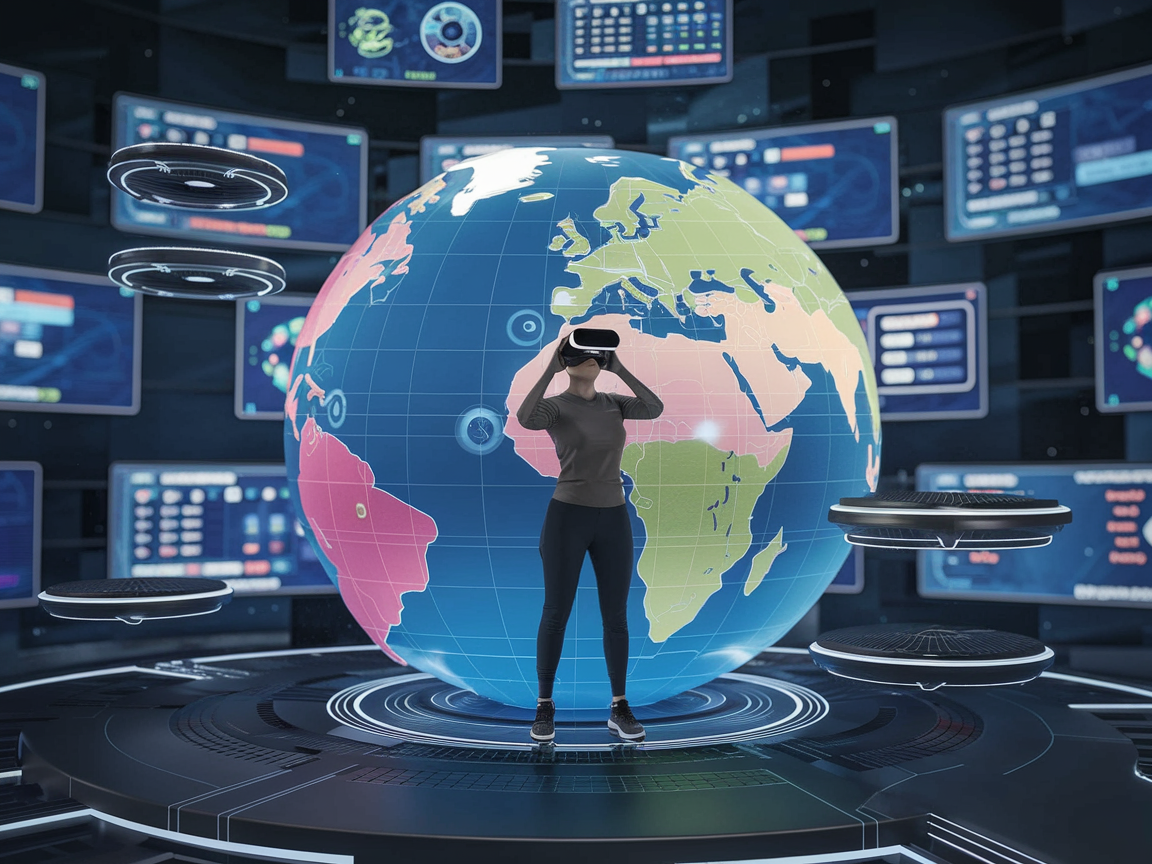
Digital Marketing and AI: Charting the Course for 2025 and Beyond
The convergence of artificial intelligence and digital marketing has reached a pivotal moment as we move into 2025, fundamentally transforming how businesses connect with their audiences. We’re witnessing the emergence of hyper-personalized marketing experiences, where AI systems can predict consumer needs and preferences with unprecedented accuracy. This evolution goes beyond simple demographic targeting – today’s AI-powered marketing tools analyze behavioral patterns, emotional responses, and contextual data to deliver perfectly timed, highly relevant content to each individual consumer.
The rise of multimodal AI is revolutionizing content creation and campaign management. Marketing teams are now leveraging AI systems that can simultaneously process text, images, video, and audio to create cohesive, cross-platform campaigns. These advanced systems can automatically generate variations of marketing materials tailored for different platforms while maintaining brand consistency. More impressively, they can adapt content in real-time based on performance metrics and audience engagement, ensuring maximum campaign effectiveness. The days of static, one-size-fits-all marketing approaches are rapidly becoming obsolete.
Privacy-first marketing is emerging as a crucial trend, driven by evolving regulations and growing consumer awareness. AI systems are being developed to help marketers navigate this new landscape by implementing privacy-preserving techniques such as federated learning and differential privacy. These technologies allow marketers to gain valuable insights from user data without compromising individual privacy. Additionally, blockchain-based solutions are being integrated into marketing platforms to provide transparent data handling and give consumers greater control over their information while still enabling personalized experiences.
The integration of augmented reality (AR) and virtual reality (VR) with AI is creating immersive marketing experiences that blur the line between digital and physical worlds. Brands are using AI-powered AR filters and VR environments to create interactive product demonstrations, virtual try-ons, and personalized shopping experiences. These technologies are particularly powerful when combined with AI’s predictive capabilities, allowing marketers to create dynamic, responsive environments that adapt to user behavior and preferences in real-time. As AR and VR devices become more widespread, these immersive marketing experiences will become increasingly important for engaging consumers and driving conversions.
Looking beyond 2025, we can expect to see the emergence of AI systems that can understand and respond to emotional context with greater sophistication. These systems will be capable of detecting subtle emotional cues in consumer behavior and adjusting marketing strategies accordingly. The integration of Internet of Things (IoT) devices with marketing platforms will provide even richer data for AI analysis, enabling more precise targeting and personalization. As quantum computing becomes more accessible, it will unlock new possibilities for processing vast amounts of marketing data and creating even more sophisticated predictive models. The future of digital marketing lies in creating seamless, personalized experiences that respect privacy while delivering genuine value to consumers.
#DigitalMarketing, #ArtificialIntelligence, #MarketingTrends, #FutureOfMarketing, #AITechnology, #MarketingInnovation, #DigitalTransformation, #MarTech, #BusinessInnovation, #TechnologyTrends
